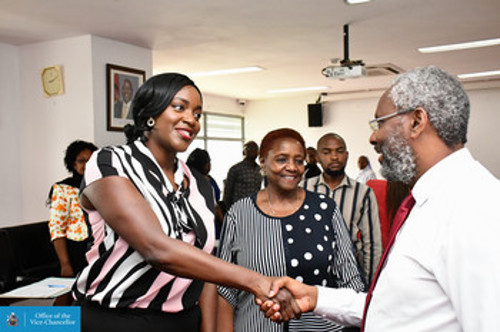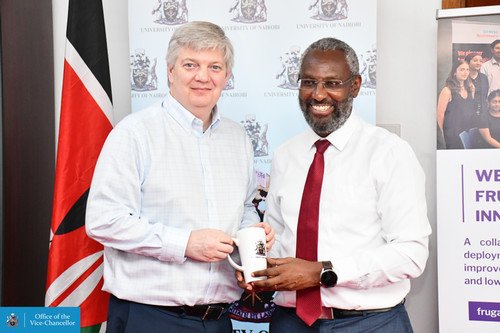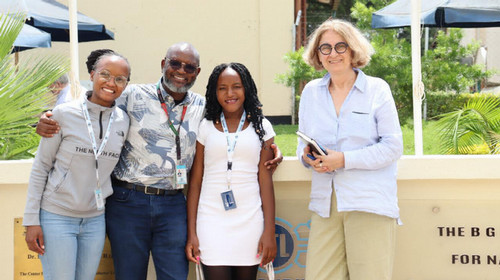Our Work in sub-Saharan Africa
Empowering Change, One Innovation at a Time
Across sub-Saharan Africa, persistent gaps in access to essential healthcare technologies continue to challenge patients, providers, and health systems. Frugal Biomedical Innovations is addressing these inequities through long-term, values-driven partnerships that prioritize local leadership, shared learning, and practical impact.
With the support of the Africa Institute, we established a Global Research Coalition that brings together engineering, science, and medical programs across the continent. To date, this coalition includes research collaboration agreements with eight universities in six countries:
→The University of Nairobi and Kenyatta University, Kenya
→ Makerere University and Mbarara University of Science and Technology, Uganda
→ Bahir Dar Institute of Technology, Ethiopia
→ University of Rwanda, Rwanda
→ University of Ibadan, Nigeria
→ Universite Cheikh Anta Diop, Senegal
These partnerships have enabled collaborative research and innovation in medical technology, alongside growing relationships with medical device companies in Africa and the Middle East. Central to this work is a commitment to understanding healthcare priorities as defined by partner communities themselves and co-creating technologies that are culturally, clinically, and contextually appropriate.
Through the Frugal Biomedical Innovations Catalyst Grant Program, we have supported partner-led projects such as 3D-printed prosthetic hands and legs in Ethiopia, and a smart toothbrush and tele-dentistry system designed to improve oral health for children with neurodevelopmental challenges in Kenya. Each project reflects a deep respect for end users and a focus on solutions that are both effective and sustainable.
Despite this progress, the need remains urgent. A 2021 survey of 700 healthcare facilities in Burkina Faso, Kenya, and Malawi found that 90 per cent lacked sufficient access to critical technologies for maternal, neonatal, and child health care. This reality underscores why continued collaboration, innovation, and investment are essential.
Looking ahead, we are expanding our network of partnerships and creating new educational pathways through the Engineering Health Equity Graduate Fellowship. To learn more about the people and perspectives shaping this work, explore the Guest Talks section of our website. There, you’ll find video talks from guest speakers involved in healthcare advocacy and innovation across Africa, sharing lived experience, lessons learned, and insights that deepen the impact of our collective efforts. 



